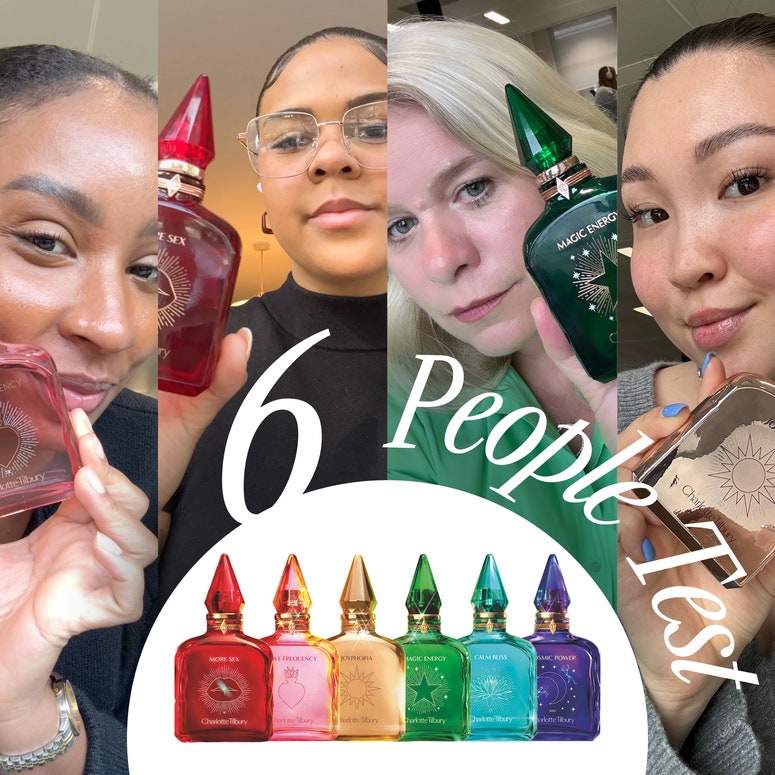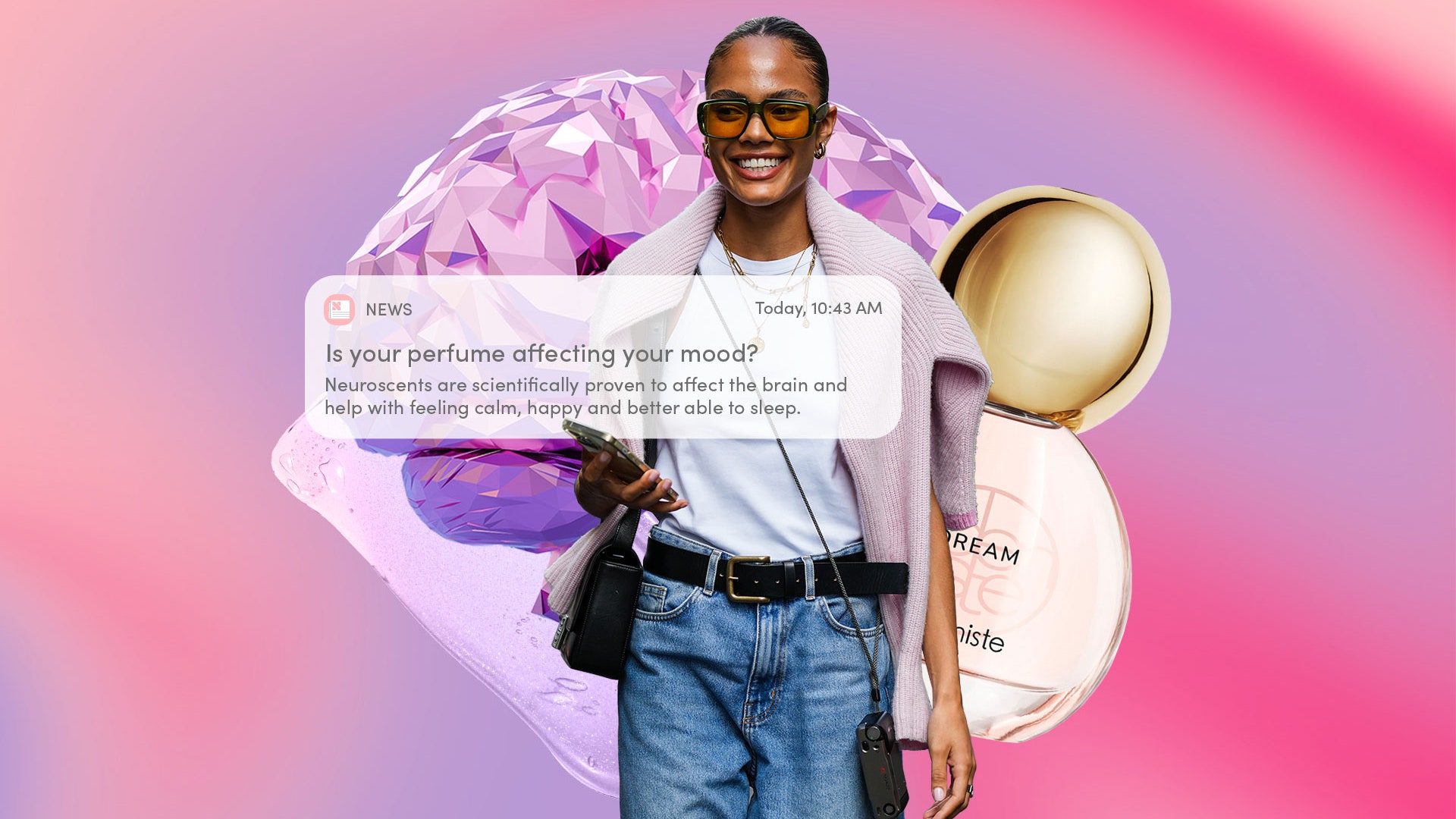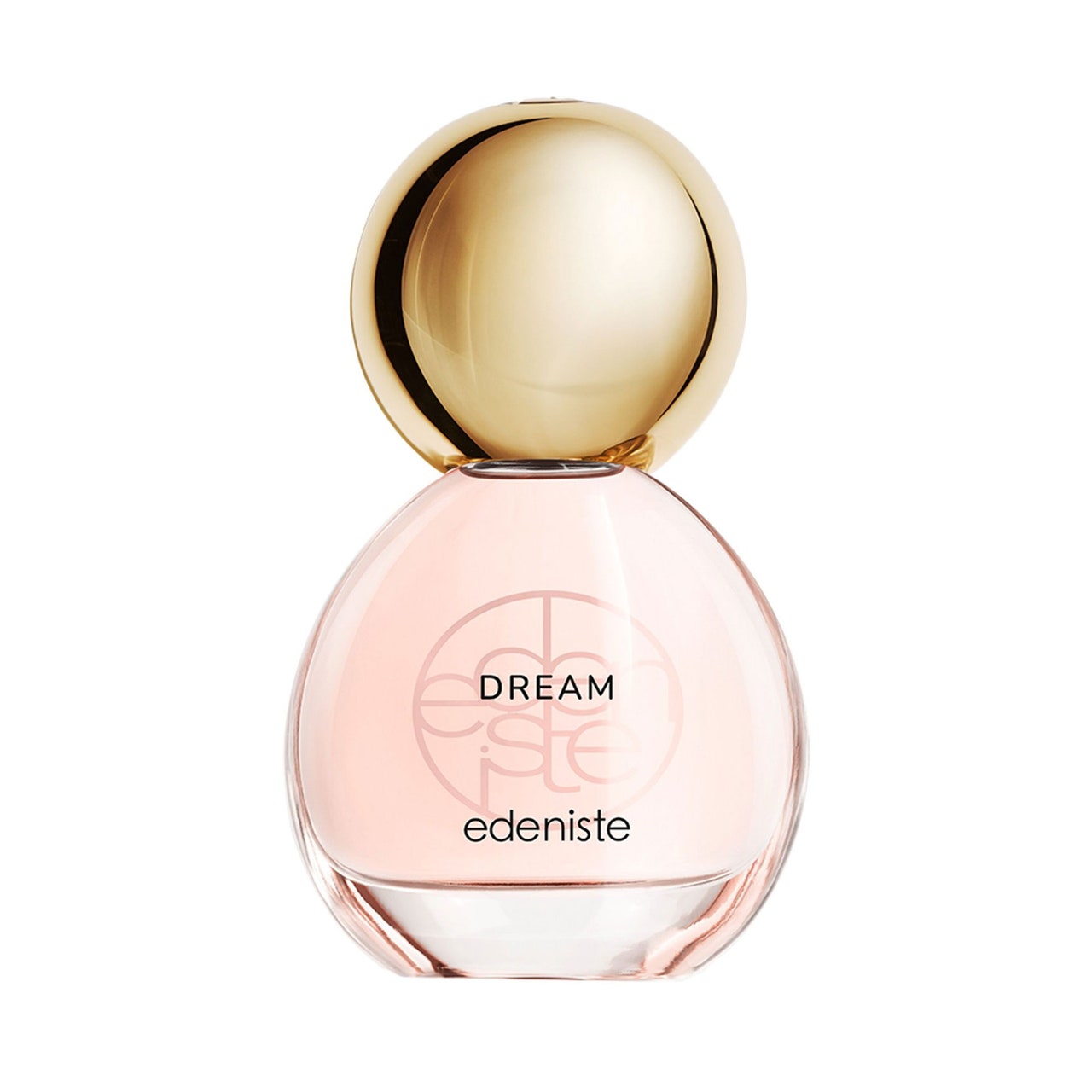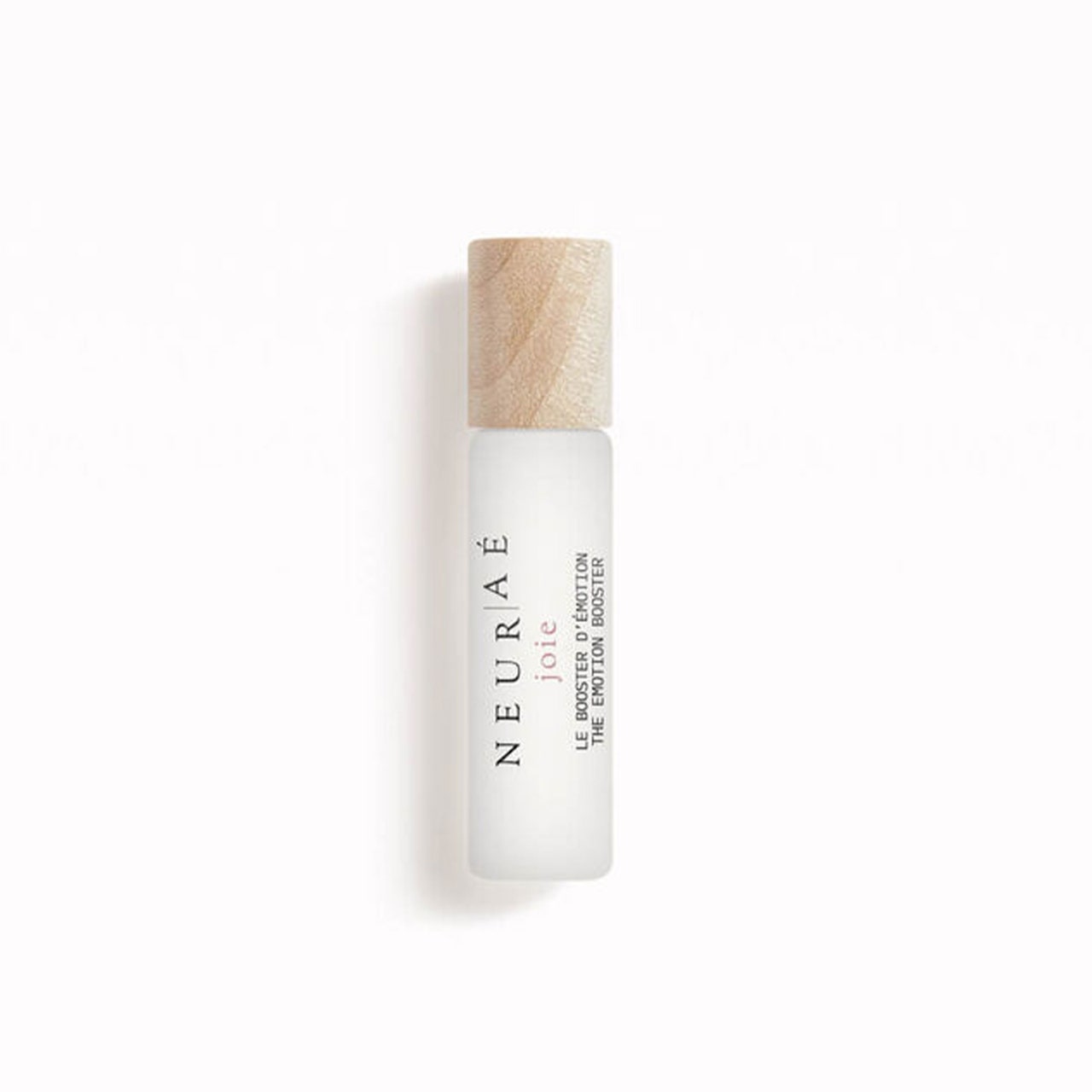Gone are the days when your beauty products just worked. Now they have to make you feel something, too. Happily, the new trend for neuroscents – smells scientifically proven to arouse feelings of calm or happiness – can help with that.
By its very nature, perfume has always tapped into this idea, but neuroscents have taken even a fragrance's mood-boosting powers to new heights. It's a similar story for skincare, where neuroscents are becoming a popular add-on feature for the creams we apply every day, as beauty continues to spill over into the world of wellness.
The signs have been there for a while. Girl therapy – using dopamine-inducing beauty products –has over 78 million views and counting on TikTok. While “emotional fitness” has been identified as a key shift in the world of beauty right now by trend forecasting company WGSN.
This means “every beauty moment is intentional”, says its director of beauty Clare Varga, adding that “empathetic products that promote self-love or build emotional resilience are key purchase motivators".
When you consider that the wellness market is estimated to be worth approximately £1.1 trillion globally, it's easy to see how neuroscents fit neatly into a self-care movement.
So, what exactly are neuroscents?
As the name implies, neuroscents are smells that certain parts of your brain respond to for happiness, energy or to improve sleep.
While the benefits are similar to aromatherapy, neuroscents lean more into aromachology, which deals with the psychological rather than therapeutic effects that scent has on our mood and our behaviour.
The neuroscents on the market right now include ingredients that have either been tested directly by neuroscientists or appear in peer-reviewed medical journals. Some, especially those used in skincare, are based on aromatic plant oils that we breathe in or apply topically to the skin. Others are ginned up by perfumers to smell as luxurious and complex as a regular spritz of perfume.
Either way, they are formulated with the sole intention of affecting our emotions.
The neuroscents currently stirring up feelings
Perhaps the biggest indication that neuroscents are going mainstream is that beauty giant Charlotte Tilbury is launching six new wellness fragrances on April 26 – More Sex, Love Frequency, Joyphoria, Magic Energy, Calm Bliss & Cosmic Power – with the help of neuroscientists and a psychologist.
Created by some of the world's biggest perfumers, including Anne Flipo and Dominique Ropion, each perfume uses emotion-boosting molecules backed by data from the International Fragrance Foundation (IFF).
Over the past 40 years, the IFF has tested thousands of fragrance notes in order to identify which ones are thought to trigger receptors in the brain. It has read brain patterns that respond to certain ingredients, and leveraged A.I, neuroscience and an algorithm called Scentcube, to identify six emotions that can be targeted by the power of scent.
It is proof Charlotte says, “that the power of fragrance is not a placebo effect. We are discovering so much about the brain all the time; where our reptilian part of the brain exists and where our emotional centre exists."
Here's what we thought.

Neuroscents almost make the idea of a single signature scent feel redundant. “Why would you just have one makeup look? It's the same with fragrance,” says Charlotte. "Now it's about asking, ‘How do I want to feel today?’. [Neuroscents are] like choosing a radio station on the dial to how you want to feel, and you will feel that way.”
As for how to wear a neuroscent, Charlotte is a fan of layering for different moods throughout the day. She also recommends misting a little Calm Bliss, where relaxing lavandin oil and a watery accord conjure up serenity, onto your pillow. Or spritzing Magic Energy, which is spiked with reviving bergamot oil and a spiritual Palo Santo accord, around a yoga mat.
Charlotte Tilbury isn't alone in her belief that neuroscents are the future of wellness.
Scientists at Givaudan, one of the world's biggest fragrance suppliers, use fMRI scans and electroencephalogram (EEG) to pick up the electrical signals produced by the brain in response to perfume smells. Its database of neuro scents, known as MoodScentz, covers three emotional states: invigorated, happy and relaxed.
L'Oreal Paris has partnered with neurotechnology company Emotiv to create an in-store EEG headset that helps those shopping for a new Yves Saint Laurent perfume discover which scents appeal to them.
To create Mind Energy, the Nue Co. used research from the Brain and Behaviour Laboratory at the University of Geneva where, over five years and across 15 countries, scientists conducted fMRI scans to reveal which fragrance notes lit up specific parts of the brain.
The scent features clary sage, juniper and pink peppercorn as these ingredients were found to stimulate the part of the brain associated with invigoration and increased focus.
Another neuroscience perfume brand is Edeniste. It uses a range of ingredients from Takasago, a neuroscience fragrance house based in Japan, which has been conducting studies into a scent's impact on mood for 35-plus years.
The range features seven perfumes, each of which contains a patented Destress Accord and six Lifeboosts. The latter targets specific moods and their effects have been tested by a neurologist.
We love the grounding Dream Lifeboost, which contains a secret active scent molecule and smells of musk and jasmine. An EEG also showed an increase in slower theta brain waves when you smell it – a sure sign that you're entering a deeply relaxed state.
“Consumers are now looking for products that improve their overall wellbeing," says Edeniste founder Audrey Sermerano. “They want to smell good, but also feel good.”
Neuroscents are spilling into skincare, too
Your face has an uncanny knack of being able to tell the world exactly how you're feeling. Stressed? Blame the release of cortisol for the spots and red patches blooming across your skin.
Known as the brain-skin connection, the idea is that the brain processes emotions and the body manifests them.
For this reason, Clarins has also collaborated with Takasago for its reformulated Multi Active skincare line. Having identified ‘stress ageing’ as a key cause of uneven skin tone and signs of fatigue, both the Day and Night Cream is a blend of niacinamide, relaxing scent molecules including cedar wood and a stress-relieving note (again under wraps).
Meanwhile, Neuraé is a buzzy new skincare brand developed by Sisley that is built around 10 years of neuroscience research. It claims to go one step further by triggering positive neurological responses in both the skin and the mind.
Targeting three emotions – Énergie (energy), Joie (joy) and Sérénité (calm) – the product line-up includes a serum and cream with neuro-active ingredients and a matching oil-based fragrance booster.
Feeling blue? Apply the Joie moisturiser laced with Alpine Skullcap extract, which stimulates the production of endorphins (a pleasure hormone), and apply the uplifting citrus-infused rollerball to pulse points.
But do neuroscents really work? A neuroscientist weighs in
So do neuroscents really work? The easy answer for neuroscientist Dr Tara Swart is yes.
“The positive effect these scents have on your mental health and wellbeing happen because of how your brain processes the scents when you inhale them,” she notes.
Put simply, the olfactory nerve is stimulated when you smell something, and that triggers a response in the amygdala, the part of your brain responsible for processing emotions. This, in turn, sets off the release of various neurotransmitters, such as endorphins (a pleasure hormone) and GABA (a relaxation agent).
Dr Swart namechecks rose and bergamot essential oils as potent neuroscents. “Rose heightens the release of serotonin—a neurotransmitter renowned for its happiness-inducing effects,” she says. “Bergamot essential oil stimulates the release of endorphins – the brain's feel-good chemicals. Endorphins, correlate with gamma brainwaves, and accompany heightened states of awareness.”
Attention has also shifted to how neuroscents improve your memory and focus. “New research finds that repeated exposure to certain scents – a process known as ‘olfactory enrichment’ – can even help improve your cognition and memory as you age,” Dr Swart says.
In one six-month study by the University of California–Irvine, researchers conducted word recall tests, along with fMRI scans, to assess cognitive function and physical changes in the brain before and after the trial.
They found that those who diffused essential oils for a few hours each night showed a 226% improvement in cognitive performance measures like verbal learning and memory compared to the control group.
Tune into your sense of smell for emotional wellbeing
Of course, a science-based perfume won't be for everyone. I also think that even if a perfume contains neuroscents, you have to like the smell in the first place in order to reap the wellness benefits.
There's evidence that our preference for scents may have already been decided in childhood, thanks to a process known as ‘imprinting – when the brain banks memories of the first time we smell an aroma, especially those that we find unpleasant.
I personally don't like the smell of roses, so if it's included in a face cream or perfume I'm unlikely to feel a jolt of happiness when I inhale a lungful of it.
But I do see the value of neuroscents, especially considering 75% of human emotions are triggered by smell.
As a beauty editor who is emailed daily stats about what a stressed-out nation we are, it's reassuring to have another mood-boosting habit in our toolkit.
Actually thinking about how you want to feel on any given day – and having a matching scent that leaves your collarbone smelling like a relaxing spa – is pretty irresistible, too.
For more from Fiona Embleton, GLAMOUR's Associate Beauty Director, follow her on @fiembleton.




%2520copy.jpg)
